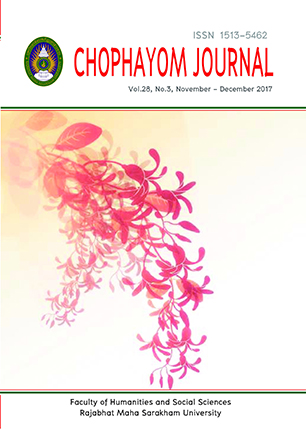Autonomous Learning through an Online English Learning Program by Low Proficiency EFL Students
Keywords:
autonomous learning, EFL students, low English proficiency Thai students, online English learning programAbstract
Abstract
The prime concern of this present study is to answer a question whether an online language program as one of autonomous learning activities can promote positive perceptions on autonomous language learning of low proficiency EFL (English as a Foreign Language) students. Along with the perception, this study tends to explore the difficulties in implementing an online language program to promote autonomy among these students. The quantitative inquiry was conducted through the collection of a 5-point Likert scale questionnaire. Participants were the intact group of low proficiency Thai EFL students enrolling in Foundation English I course at a public university in Bangkok, Thailand. The main findings show that the majority of the participants had positive perceptions on using an online language program. Moreover, the online language learning was found to be effective in allowing students to control their own learning pace, which is one of the attributes of
autonomous learning. However, a few students had difficulty adapting to autonomous learning through the online language program. Such difficulties were related to the factors including cultural interferences, self-discipline, and learning skills. The results of the study support the idea that, through an online language program, low proficiency EFL students can develop their learning autonomy if they have clear understandings of the sense of learning authority that has been shifted, and are equipped with the skills, knowledge, and strategies necessary for autonomous learning.






